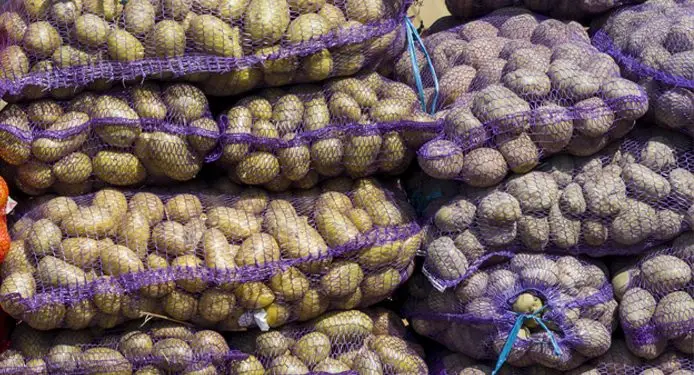Amid reports of people in Sri Lanka skipping meals due to soaring food prices, Agriculture Minister Mahinda Amaraweera has proposed the imposition of import duties on potatoes to stabilize prices and regulate imports. Despite concerns about rising poverty levels following a currency crisis in 2022, the minister emphasized the need for measures to control the cost of essential food items.
The initiative to implement a permanent tax on potatoes and big onions aims to address the fluctuations in prices, with the possibility of adjusting or removing the tax during shortages. Sri Lanka, which initiated potato and onion cultivation in the 1980s as part of import substitution efforts, has historically provided protection to these crops.
The country, known for its economic reforms in the late 1970s, faced challenges such as currency devaluation and inflation in subsequent years. The recent food tax proposal comes at a time when a significant portion of the population is experiencing hardships, as highlighted by a survey conducted by LirneAsia. The study revealed that a considerable number of respondents had resorted to skipping meals or reducing portion sizes due to the economic crisis.
Amaraweera noted the struggles faced by local farmers in competing with imported produce, attributing the high prices to elevated production costs and the reliance on imported seed potatoes. The minister expressed efforts to enhance local seed potato production to boost competitiveness in the market.
While some Sri Lankan farmers cater to both domestic and export markets, others have operated under protective tariffs for years, resulting in prices that exceed global standards. The proposed tax adjustments aim to address these challenges and ensure greater food security for the population.







